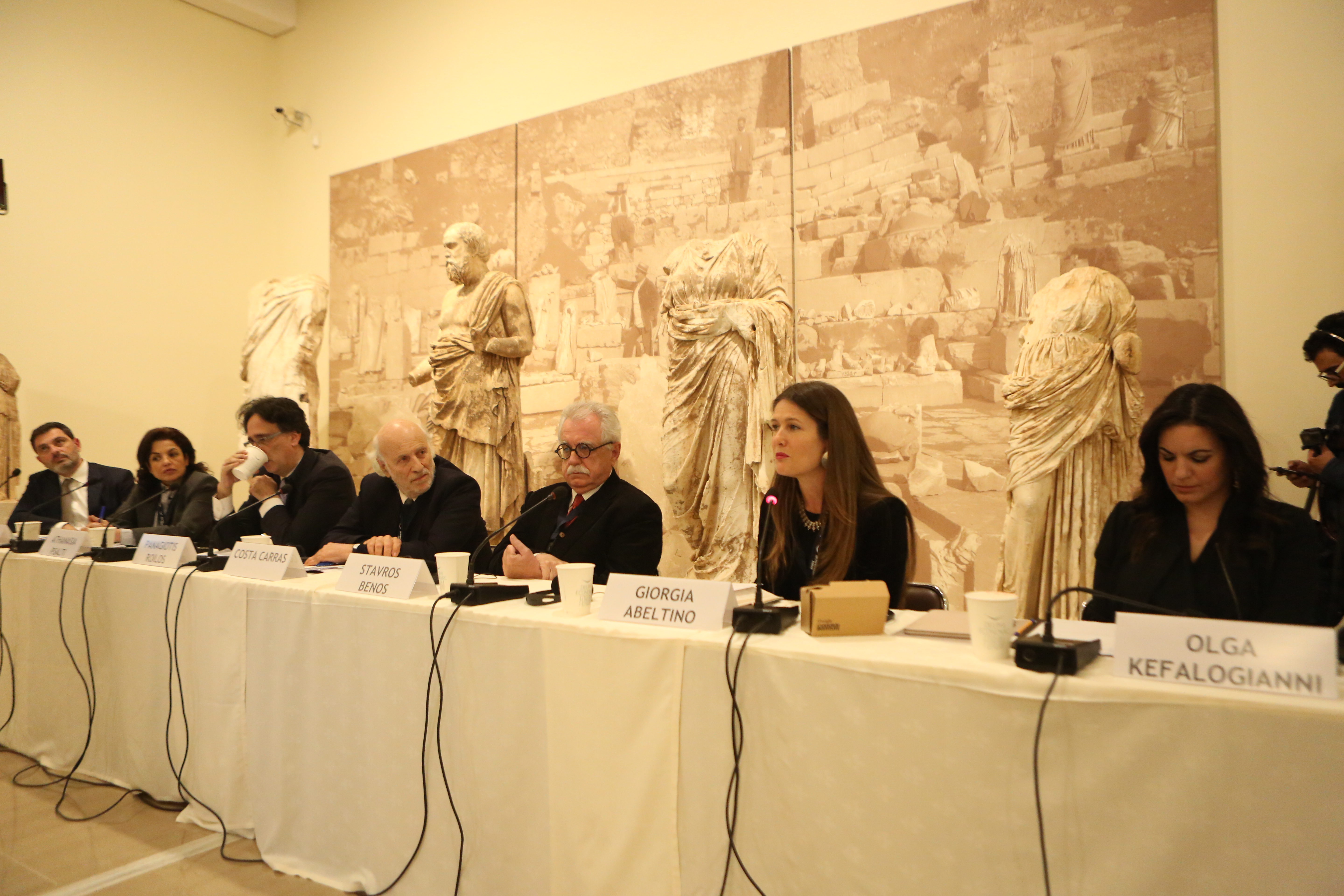Europa Nostra takes part in debate on heritage as economic value at Delphi Economic Forum, Greece
The Delphi Economic Forum II was held from 2-5 March 2017, in Delphi, Greece. This year emphasis was given on Greece’s cultural heritage and its pivotal role in generating local and regional development thus contributing to building smart, sustainable and inclusive growth for the country. On 4 March, at the Archaeological Museum of Delphi with an audience of more than 250 people, a panel of experts – including Costa Carras, Vice-President of Europa Nostra and Founder of Elliniki Etairia – discussed how we can further promote cultural heritage as a generator of sustainable development.
The opening statements were delivered by Lydia Koniordou, Minister of Culture and Sports of the Hellenic Republic, and Olga Kefalogianni, MP for Athens and Minister of Tourism in the Greek Government prior to 2015. The speakers at the panel discussion ‘Cultural heritage as economic value: Economic benefits and social opportunities’ held on 4 March were Costa Carras, Giorgia Abeltino, Director of the Public Policy of Google Cultural Institute, Stavros Benos, Minister of Culture (1996) and President of DIAZOMA, Athanasia Psalti, Director of the Ephorate of Antiquities of Phocis, Panagiotis Roilos, George Seferis Professor of Modern Greek Studies and of Comparative Literature at the Weatherhead Center for International Affairs.
Costa Carras analysed the potential of cultural heritage as economic value, stressing that culture and cultural heritage are not luxuries but contribute positively to economic and job growth. Focusing on the major Report ‘Cultural Heritage Counts for Europe’, produced by Europa Nostra together with five European partners in 2015, he mentioned its basic conclusions:
(a) Sustainable development depends not only on economic, environmental, social factors but on cultural;
(b) Cultural heritage encourages investments because people like living and working in areas of cultural creativity;
(c) Cultural heritage and particularly distinctions like the UNESCO World Heritage listing can be used as the basis of a more general marketing strategy for the region; and
(d) Cultural heritage creates jobs – so is important for countries with high unemployment. Building rehabilitation investment creates one third more jobs than manufacturing investment of the same value. And cultural heritage produces over 25 indirect jobs for each direct job, whereas e.g. the car industry only six.
Furthermore, Costa Carras spoke about four major projects of architectural conservation that Elliniki Etairia – Society for the Environment and Cultural Heritage and Europa Nostra are proposing for Greece, namely Kastoria, the Kampos of Chios and, within Attica, Marathon and Tatoi. “All these are not just culturally but economically important if the state is willing to accept, first, that some private involvement is necessary even when the sites are owned by the public; and, second, that the public interest, cultural and economic, in preserving the cultural heritage, has to take precedence over the chaos often created by absent owners and divided ownership. There is an immense amount left to be done and all Greeks can and must gain through doing it,” stated the Vice-President of Europa Nostra.
The Delphi Economic Forum II, a major four-day conference, featured more than 40 sessions, 7 round table discussions and 250 speakers from Greece and abroad, combining public events and restricted workshops to bring crucial topics to an audience of decision makers.







